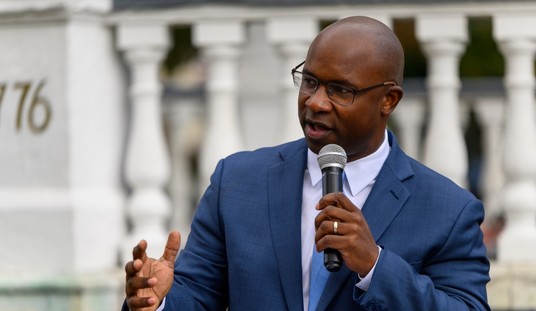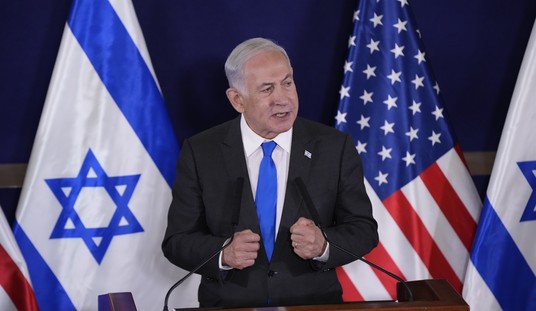“I have a question: How come we’re supposed to draw (on the basis of no evidence), a connection between conservatism and terrorism, conservative ideology and terrorism? Where is that connection? Yet we are told we must reject, despite tons of evidence, the connection between Islamist ideology and terrorism. So we can’t call Islamist fundamentalists ‘terrorists.’ We can’t even use the word. But we can have ex-presidents and current presidents running around trying to associate conservatives with nonexistent terrorism at peaceful tea parties. Somebody needs to explain this to me…
“We cannot associate radical Islam with terrorism but the president can go out and Obama can go out and try to associate the tea party — genuine, peace-loving, middle-American citizens of this country — with future acts of terrorism? The tea parties, you know why they’re hated? I’ll tell you why they’re hated. If you’re a member of a tea party, if you participated in one yesterday, why you’re hated, why you’re feared: This regime and the Clintons, everybody else knows that all you want to do is defend what’s left of this country and try to rebuild it.”
***
“Responding directly to Limbaugh, Clinton told me, ‘The only point I tried to make was that we ought to have a lot of political dissent — a lot of political argument. Nobody is right all the time. But we also have to take responsibility for the possible consequences of what we say.’
“One of those consequences, Clinton said, was threats against public officials. ‘We shouldn’t demonize the government or its public employees or its elected officials. We can disagree with them. We can harshly criticize them. But when we turn them into an object of demonization, you know, you — you increase the number of threats.’…
“‘I just think we all have to be careful. We ought to remember after Oklahoma City, we learned something about the difference in disagreement and demonization,’ Clinton said.”
***
“Later, under the heading ‘How to use extremism as issue against Republicans,’ Morris told Clinton that ‘direct accusations’ of extremism wouldn’t work because the Republicans were not, in fact, extremists. Rather, Morris recommended what he called the ‘ricochet theory.’ Clinton would ‘stimulate national concern over extremism and terror,’ and then, ‘when issue is at top of national agenda, suspicion naturally gravitates to Republicans.’ As that happened, Morris recommended, Clinton would use his executive authority to impose ‘intrusive’ measures against so-called extremist groups. Clinton would explain that such intrusive measures were necessary to prevent future violence, knowing that his actions would, Morris wrote, ‘provoke outrage by extremist groups who will write their local Republican congressmen.’ Then, if members of Congress complained, that would ‘link right-wing of the party to extremist groups.’ The net effect, Morris concluded, would be ‘self-inflicted linkage between [GOP] and extremists.’
“Clinton’s proposals — for example, new limits on firearms and some explosives that were opposed by the National Rifle Association — had ‘an underlying political purpose,’ Morris later wrote in another book about Clinton, Because He Could. That purpose was ‘to lead voters to identify the Oklahoma City bombing with the right wing. By making proposals we knew the Republicans would reject…we could label them as soft on terror and imply a connection with the extremism of the fanatics who bombed the Murrah Federal Building.'”
***








Join the conversation as a VIP Member